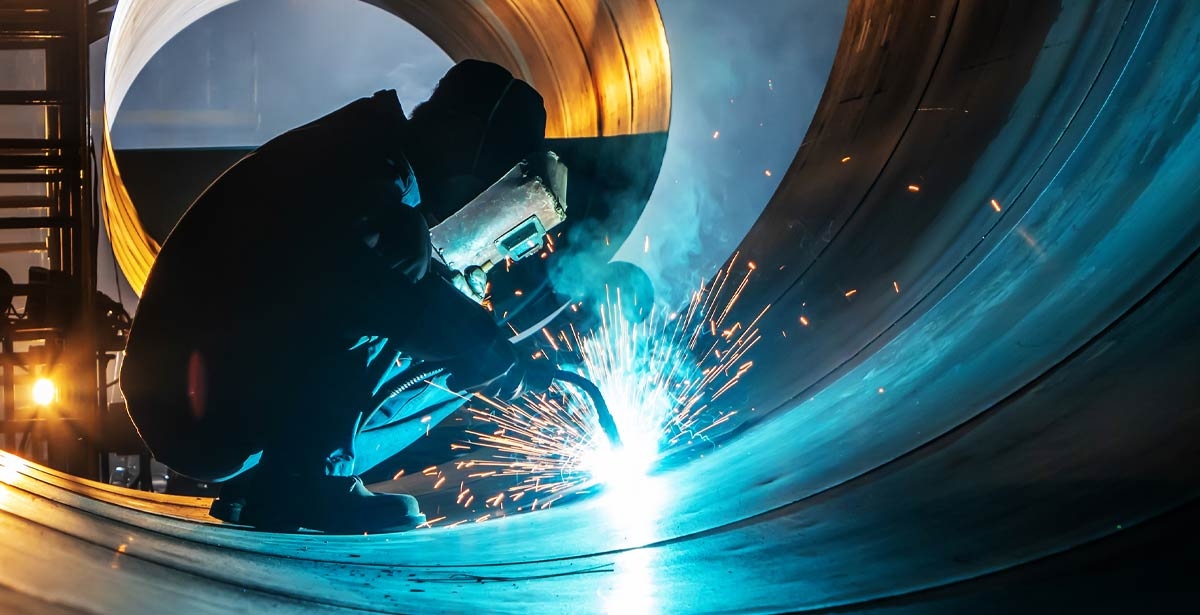The Ultimate Overview to Welding WPS Procedures: A Thorough Summary for Welders
In the elaborate globe of welding, Welding Treatment Specs (WPS) offer as the backbone of making certain high quality, uniformity, and safety and security in welding operations (welding WPS). As we dig right into the various elements of a WPS and discover the intricacies of qualification and certification, we will discover the crucial role these treatments play in the world of welding.
Value of WPS Procedures
Comprehending the importance of Welding Treatment Requirements (WPS) procedures is crucial for ensuring the top quality and honesty of welded structures. WPS procedures serve as a roadmap for welders, detailing the needed steps, parameters, and products needed to attain a sound weld. By adhering to WPS standards, welders can ensure consistency in their job, bring about structurally sound and reliable welds.
One of the primary factors why WPS treatments are essential is their function in keeping weld top quality and honesty. Complying with the defined welding criteria and strategies detailed in the WPS aids stop issues such as porosity, fracturing, or insufficient blend, which can endanger the toughness and durability of the weld.

Elements of a WPS
A Welding Treatment Specification (WPS) typically consists of important parts that detail the details demands for executing a weld, guaranteeing uniformity and high quality in the welding process. The key parts of a WPS consist of crucial variables such as base metals, filler metals, interpass and preheat temperatures, welding procedures, shielding gases, welding settings, and post-weld warmth treatment demands.
Base steels refer to the products being joined, while filler metals are made use of to fill the space in between the base steels during welding. Preheat and interpass temperature levels are important for controlling the warm input and stopping issues like fracturing or distortion. The welding process lays out the specific technique to be utilized, whether it's gas steel arc welding (GMAW), shielded steel arc welding (SMAW), or another technique. Shielding gases secure the weld swimming pool from atmospheric contamination. Welding placements define the positionings in which welding can be executed. Post-weld heat treatment may be required to eliminate stresses and boost the weld's homes. A comprehensive understanding of these parts is crucial for creating a efficient and thorough WPS.

Certification and Accreditation
Having actually developed the crucial components of a Welding Treatment Specification (WPS), the focus currently moves in the direction of the critical aspects of certification and accreditation in welding methods.

Certification, on the other hand, is the formal recognition of a welder's qualifications by a relevant certification body or organization. Welding qualifications are typically based upon the details welding procedures, products, and placements a welder is certified to deal with. Holding a legitimate welding certification demonstrates that a welder meets industry requirements and is experienced to carry out welding jobs to the required requirements.
Developing a WPS
To develop a Welding Treatment Specification (WPS) that fulfills industry criteria, cautious consideration of welding processes, products, and functional specifications is important. The first step in creating a WPS is to recognize the welding process to be utilized, such as gas metal arc welding (GMAW) or shielded steel arc welding (SMAW)

Applying and Keeping An Eye On WPS
Upon completing the detailed Welding Treatment Spec (WPS) that diligently details welding procedures, materials, functional criteria, and quality control steps, the emphasis changes to properly executing and checking the recognized procedures. Implementation entails ensuring that all welders associated with the task know with the WPS and follow it thoroughly throughout the welding process. This calls for providing sufficient training and supervision to guarantee adherence to the defined procedures. Keeping track of the WPS includes constant oversight to validate that welding activities straighten with the recorded specs. Evaluations, testing, and quality assurance steps are necessary elements of the surveillance procedure to recognize any discrepancies or problems promptly. Routine audits and evaluations of the welding procedures help in preserving uniformity and top quality throughout the task. Reliable execution and surveillance of the WPS are crucial for guaranteeing the stability, stamina, and security of the welded joints, eventually adding to the total success of the welding project.
Conclusion
In final thought, understanding and adhering to Welding Treatment Requirements (WPS) is critical for welders to make sure high quality, consistency, and safety in their job. By understanding the parts of a WPS, obtaining proper certifications and qualifications, producing detailed treatments, and executing and checking them efficiently, welders can boost their skills and efficiency in welding practices. Following WPS procedures is crucial for producing high-grade welds and meeting industry standards.
In the detailed world of welding, Welding Treatment Requirements (WPS) serve as the foundation of ensuring high quality, uniformity, and safety in welding procedures. The welding procedure outlines the certain strategy to be used, whether it's gas steel arc welding (GMAW), secured metal arc welding (SMAW), or one more approach.To establish a Welding Procedure Specification (WPS) that meets sector requirements, cautious factor to consider of welding processes, materials, and operational parameters is crucial. The first action in developing a WPS is to identify the welding procedure to be made use of, such as gas metal arc welding (GMAW) or protected metal arc welding (SMAW)Upon settling the extensive Welding Procedure Requirements (WPS) that meticulously details welding procedures, materials, operational parameters, and quality guarantee procedures, the emphasis shifts to efficiently executing and keeping an eye on the recognized treatments.
Comments on “Just how to Create a Reliable Welding WPS: Tips and Ideal Practices”